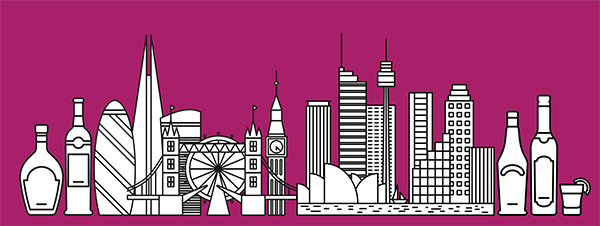Major UK/Australian Report Confirms: Nothing Good Happens After Midnight
Restricting access to alcohol—including limiting hours of sale—changes both the physical access and the psychology of alcohol use, researchers say.

The United States faces constant erosion of alcohol access policies thanks to the political influence of the alcohol industry. American legislators are not alone in facing this soft-power onslaught. In 2005, England and Wales allowed 24-hour liquor sale licenses, a dramatic change from their previous 11 p.m. last-call times. Meanwhile, the Australian parliament is spinning its wheels trying to enact liquor law reforms, with most meaningful legislation coming at the local level. A powerful new joint report from the Foundation for Alcohol Research and Education (FARE) and the Institute of Alcohol Studies (IAS) lays out some straightforward and effective access policies for Australia and the UK. These policies do not just set a practical standard for alcohol regulation in those countries, they encompass a set of best practices for all regulators worldwide.
FARE/IAS make the important case that alcohol access restrictions' power do not derive from denying alcohol to interested purchasers. Instead, they change the context of alcohol use. If customers have to go to a specific store to buy liquor, as opposed to purchasing gin along with their Cheerios, it both reduces impulse purchases (and consequently impulse use) and creates a psychological firewall that can reduce overall drinking. Moreover, access laws meant to address one alcohol harm often bleed over on to others. The report notes that policies meant to address intoxicated driving also seem to depress domestic violence—the awareness of drinking as potentially dangerous inspires self-control.
With this in mind, the authors recommend certain forms of alcohol sale limitations as "best buys," including:
- ending the sales of alcohol for off-site consumption at 10 p.m.
- ending sales for on-site consumption at midnight
- stronger regulation and monitoring of off-site sales, including "quarantining" alcohol away from other food products
- improve community access to regulators and licensing bodies
- requiring alcohol license applicants responsible for proving their business will cause minimal harm, rather than having to wait until harm occurs to pull a license
- replacing industry-designed and industry-sponsored voluntary "regulations" with evidence-based policies
The report also includes a scorecard of existing policies throughout Australia and the UK, grading policies on body of evidence for effectiveness, resource intensiveness, and ease of institution. As the authors point out, the answers are there, if politicians will just show the will to embrace them.
Help us hold Big Alcohol accountable for the harm its products cause.
| GET ACTION ALERTS AND eNEWS |
STAY CONNECTED    |
CONTACT US 24 Belvedere St. San Rafael, CA 94901 415-456-5692 |
SUPPORT US Terms of Service & Privacy Policy |


